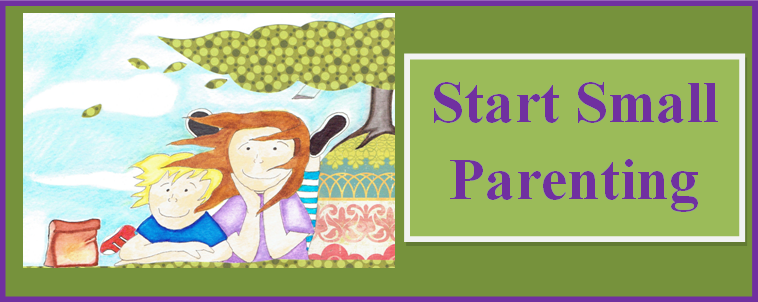I’m so pleased to introduce Fern Weis of Your Family Matters. She is a certified coach helping parents of teens to change silence to sharing, apathy to responsibility and to raise them to confident, self-sufficient adulthood. As the founder of Your Family Matters, she works with parents privately, in groups, and leads a variety of in-person and virtual workshops. She is also a middle school teacher, writer, and parent.
~~~
THE PERILS OF THE “SEND” BUTTON
(or “Would you say that to her face?”)
 I recently retweeted this message from Emily Roberts (therapist and author). “Parents, ask your kids ‘Would you say that to her face?’ When texting, pause before you post.”
I recently retweeted this message from Emily Roberts (therapist and author). “Parents, ask your kids ‘Would you say that to her face?’ When texting, pause before you post.”
“Would you say that to her face?” What a great question. It has become way too easy to type out a message and send it off into cyberspace. Technology has given us the ability to send information faster and farther than ever before. As a tool for staying in touch with family and friends, it’s great. As a way to speak your mind, it can be messy, irresponsible and even harmful.
What would you say differently, or not at all, if the person was standing in front of you? This question is for you, parents, as well as for your kids.

Think about it for a moment. When you speak directly to someone, there are visual and auditory cues coming at you – a facial expression, tone of voice, body language, their immediate response. This is a living, feeling person you are talking to, not just the faceless idea of someone. Email, texting, voice mail… in some instances they have become an impersonal way of communicating, one that allows us to ignore our responsibility for what we put out there. It can be the quick and easy way out. In the extreme, it is dangerous. Depending on the circumstances, it can also be a form of bullying.
The strategy in last month’s Parent Journal was to “take five” before responding so that you say what you really mean. This is a good strategy for the written word, too. I have heard stories of people sending off an email to someone they are angry at. They end up in an email battle, messages flying back and forth, and sometimes irreparable damage is done to the relationship. (And let’s not forget the risks involved in “reply all”. When did everything become everybody’s business anyway?)
The dangers for our teens are very real, whether they are on the sending or receiving side of these messages. Teenagers have far less impulse control and are swayed more by their emotions and their need to fit in. Encourage your children to ‘take five’ too. Ask them if they would have the courage to speak their mind, face to face. This is a real test of their character. Remind them that once they say something, it takes on a life of its own and cannot be undone.
As always, consider what you are teaching your children. If you are already aware and careful in how you communicate, bravo! If you think there is room for change, do it now. Take a look at what you say, how you express it, and how you send it out into the world. And tell your kids about your new attitude. Teach them well and show them how it’s done!
~~~

Check out Fern’s upcoming events and tele-seminars. Visit www.yourfamilymatterscoach.com for your free report, “The Five Biggest Mistakes Parents Make That Cause Teens to Shut Down and Tune Out.”
Here’s how you can reach her:
Fern Weis, Certified Coach
201-747-9642
fern@yourfamilymatterscoach.com
www.yourfamilymatterscoach.com



Is it true? Is it kind? Is it necessary? I believe a lot of texts, instant messages, emails, and posts are sent around that don’t fall into any of these categories.
I work with a mentoring program for boys ages 9-12, and 13-17 and I can tell you that I’m seeing the most ingenious forms of bullying imaginable. Some of it requires really looking under the hood to dissect the motives and subtleties.
Great article, Fern. Hope to see more from you.
I fully agree, in a text, message, or email there is no indication of nuance or sarcasm or seriousness. My husband has a cousin who is deaf, and amazingly adept at reading lips. In watching her life develop (she is educated, independent, and poised, by the way,) we were shocked by her choice of spouse. She cannot hear his voice, or understand how he is saying what he is saying (trust me, you would not want him for a spouse.) Her lack of hearing is not her disability, her inability to perceive actual emotional and personality cues is the real hindrance. When children rely predominantly on written communication they aren’t truly connecting, or learning how to sense the subtleties of relationships…wow, they sound hurt, or, oh thank goodness they were just joking. It is easier to be mean because it feels like you are only making words, but words are indelible choices that enter the internet and can never be removed. I am relieved I grew up in a time when note passing was dangerous because ink seemed permanent. Our kids have a lot to navigate. They need to be careful and always take %!
that should say take 5 at the end. Not take %. Obviously I don’t use my computer enough…
Not take %? I thought that was some new, cool way of writing an undetermined number of breaths or something. 🙂 Thanks, Kirsten, for your thoughtful words. I especially appreciated hearing about your cousin-in-law. That puts quite a perspective on the one-dimensionality of media messages.
Ditto here! I’ve definitely had the experience of meaning one thing and having it interpreted in a completely different context. Humor, compassion, intent, all of it, can all be lost in a text or email. It can be detrimental to any kind of relationship be it personal or business in nature. Technology is hard to navigate for ourselves much less trying to set limits and guidelines for our children. Thank you Fern, for some good advice. I will definitely take 5 (do I hear 10? 15?) and pass the advice on to my children.
I grew up during the height of AOL instant messenger and remember some terrible arguments that ensued because each person hid behind a computer screen and keyboard. The fingers type what the mind thinks, mostly without pause. But when you speak the same words aloud and hear them as they come out, you are forced to hear not just the words but the meaning, feeling and tone behind them.
There’s probably a great play in the works… all messages that finally make their way to real life. Wow… powerful to think about.